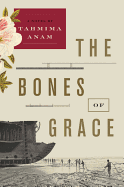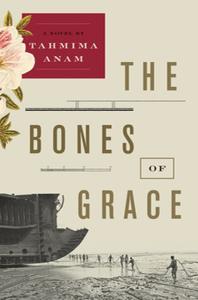
 Tahmima Anam (The Good Muslim) again takes readers into the heart of the Bengal region in this third outing with the Haque family, this time set in the modern day.
Tahmima Anam (The Good Muslim) again takes readers into the heart of the Bengal region in this third outing with the Haque family, this time set in the modern day.
Bangladeshi to the core, Zubaida Haque never intended to stay in the U.S. after finishing her paleontology degree at Harvard. Her plan was always to return to the loving arms of her family in Dhaka and marry Rashid, her childhood sweetheart. Her lack of passion for Rashid posed no obstacle; Zubaida believed she lived in times too mundane for "the epic thing, the one that went down in legend and song and was anointed with passion that lasted beyond beauty and youth." Meeting Elijah Strong challenges those assumptions. A stranger sitting next to her at a Shostakovich concert in Boston, Elijah comforts Zubaida when she cries during the performance, moved less by the music than by the unbidden memory of her ninth birthday, when her parents revealed she was adopted. Suddenly her spontaneous emotional moment becomes the beginning of a soul-deep connection to this American, and they strike up a passionate friendship. Though both clearly long for a romantic connection, Zubaida knows her family and friends would never accept a decision to break off her engagement and marry a foreigner.
Even when Zubaida goes on an archeological dig in Pakistan, to find one of the modern whale's land-dwelling ancestors, she cannot let Elijah go, exchanging coded texts with him. After the dig falls apart, though, Zubaida's return to Dhaka catches her up in a sense of momentum that soon sees her marrying Rashid and trying to settle into the traditional life everyone expects of her. Bored, she takes a job translating for a documentary crew filming the shipbreaking of a cruise vessel called Grace, a choice that will lead her to Elijah, through the tangled fibers of her own past and into the conflict inside her own heart.
Beauty and pain thrive alongside one another in Anam's intricate tragedy of thwarted love and deep divides in social classes. Prostitution and backbreaking manual labor await the poor and illiterate while a wealthier, more privileged woman like Zubaida has the luxury of attending Harvard and marrying without the need to work. However, traditional gender roles and expectations still hinder her, and her family closely guards the secret of her origin for fear it will taint her in society's eyes. The poor and broken march past, their stories painfully laid bare to us, as Zubaida struggles to integrate her need for her family and her desire to cut her own path in the standalone last chapter of a compelling three-generation series. --Jaclyn Fulwood, blogger at Infinite Reads
Shelf Talker: The daughter of a Bangladeshi family falls for an American at Harvard and struggles to reintegrate when she returns home to marry her childhood sweetheart.

